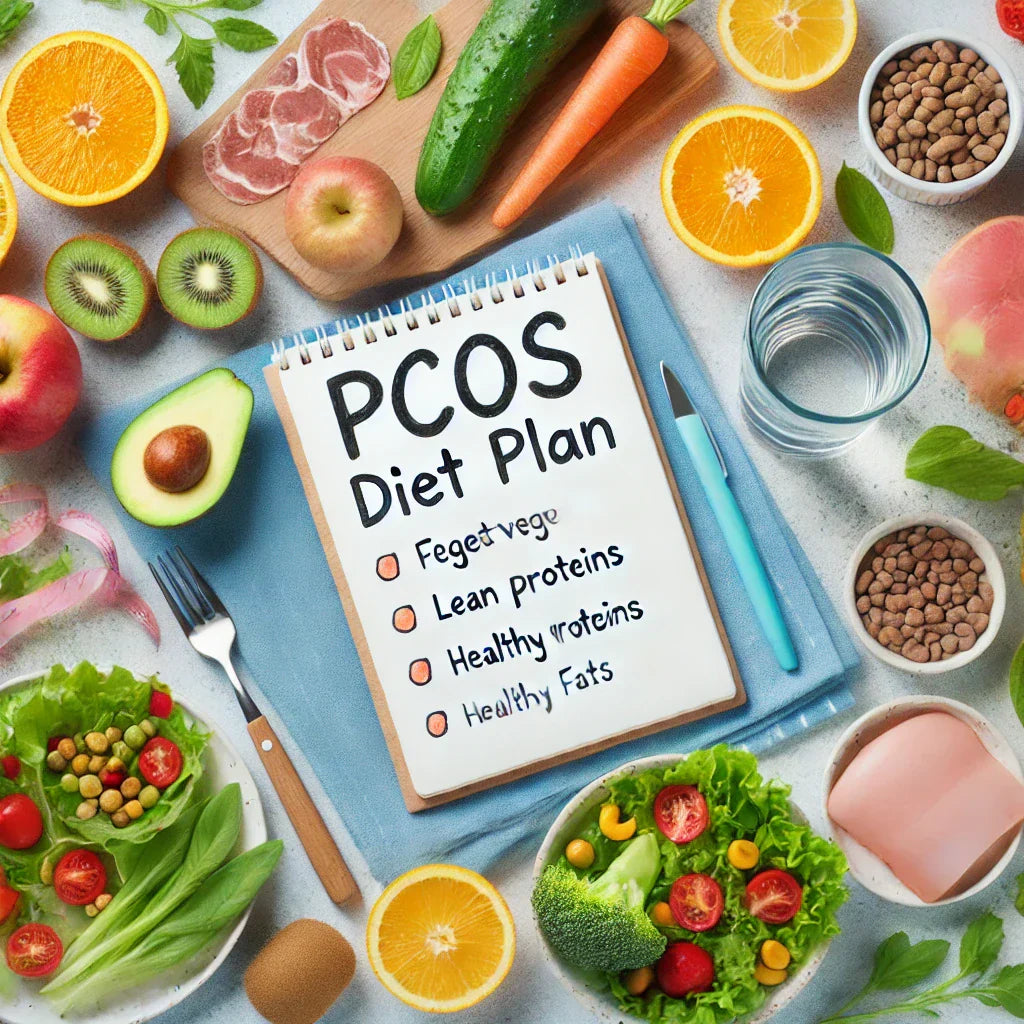News — insulin resistance
PCOS Diet: A Personalized Approach to Nutrition for Managing Symptoms
anti-inflammatory foods fiber for PCOS glycemic index healthy eating hormone balance insulin resistance low-GI foods managing PCOS meal timing for PCOS omega-3 fatty acids PCOS and blood sugar PCOS and hydration PCOS and weight management PCOS diet PCOS natural remedies PCOS nutrition PCOS symptoms personalized PCOS diet portion control supplements for PCOS
Polycystic ovary syndrome (PCOS) is a common hormonal disorder that affects millions of women worldwide. Characterized by irregular menstrual cycles, ovarian cysts, insulin resistance, and excessive androgen levels, PCOS can lead to a range of health issues, including infertility, weight gain, and metabolic complications. While there is no definitive cure for PCOS, adopting a personalized diet can help manage its symptoms and improve overall well-being.
Nutrition plays a pivotal role in balancing hormones, improving insulin sensitivity, and reducing inflammation, all of which are critical for managing PCOS effectively. A well-structured, individualized diet that focuses on nutrient-dense foods and eliminates processed sugars can significantly alleviate symptoms and enhance fertility. This article delves into the essentials of a PCOS diet, highlighting key foods, macronutrient balance, and lifestyle adjustments to create a sustainable, symptom-managing eating plan.
The Weight Gain Trap: How Processed Foods Contribute to Obesity
artificial additives calorie-dense foods empty calories fast food food cravings food industry healthy eating insulin resistance junk food metabolism nutrition obesity obesity epidemic processed foods refined carbs sugar addiction trans fats unhealthy diet weight gain weight loss
Obesity rates have skyrocketed over the past few decades, and one of the biggest culprits is the increasing consumption of processed foods. These convenient, highly palatable products are designed to be addictive, packed with hidden sugars, unhealthy fats, and artificial ingredients that disrupt our metabolism and encourage weight gain.
Despite their convenience, processed foods are often calorie-dense but nutritionally poor, leading to overconsumption without providing the essential nutrients our bodies need. Understanding how these foods contribute to obesity can help us make informed dietary choices and break free from the processed food trap.
Improving Insulin Sensitivity: The Role of Intermittent Fasting
balanced fasting diet blood sugar regulation fasting benefits fasting effects fasting for beginners fasting health tips fasting schedules glucose metabolism healthy lifestyle hormonal health improve insulin sensitivity insulin resistance insulin sensitivity insulin support intermittent fasting metabolic health
In today’s fast-paced world, managing blood sugar levels and preventing insulin resistance have become essential for overall health. Insulin sensitivity refers to how effectively your body responds to insulin, a hormone that helps regulate blood glucose. When insulin sensitivity is impaired, it can lead to conditions like type 2 diabetes, obesity, and other metabolic disorders.
Intermittent fasting (IF) has emerged as a powerful lifestyle intervention to enhance insulin sensitivity naturally. By creating structured periods of eating and fasting, this approach helps reset the body’s metabolic processes, offering numerous health benefits. This article dives into the science of insulin sensitivity and explains how intermittent fasting can be a game-changer for metabolic health.
PCOS and Infertility: Understanding the Connection and Solutions
Clomiphene conception diet for PCOS fertility hormonal balance infertility inositol insulin resistance IVF mental health support natural remedies ovulation PCOS polycystic ovary syndrome pregnancy reproductive health stress management supplements for PCOS weight management women's health
Polycystic ovary syndrome (PCOS) is a complex hormonal disorder that affects millions of women worldwide, often leading to symptoms such as irregular periods, weight gain, and excess hair growth. One of the most challenging aspects of PCOS for many women, however, is its impact on fertility. PCOS is a leading cause of infertility, making it difficult for women to conceive naturally. Understanding the connection between PCOS and infertility is crucial for exploring potential solutions and discovering ways to improve reproductive health.
Though PCOS and infertility are closely linked, there are numerous ways to address and manage this condition, helping women improve their chances of conception. From lifestyle changes and natural supplements to medical interventions and fertility treatments, multiple approaches can make a meaningful difference. This article will explain the causes, effects, and treatment options available for women with PCOS who are navigating their fertility journey.




